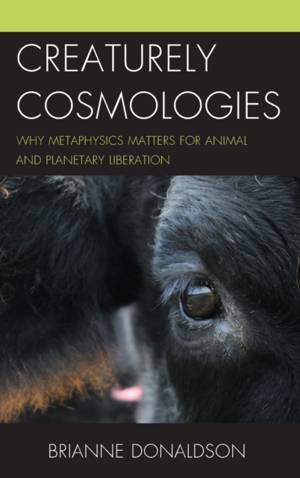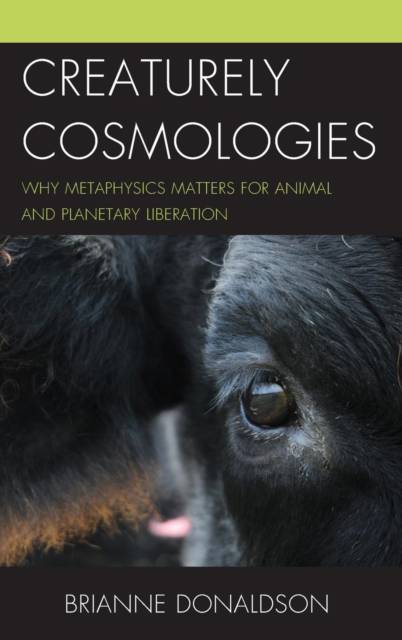
- Afhalen na 1 uur in een winkel met voorraad
- Gratis thuislevering in België vanaf € 30
- Ruim aanbod met 7 miljoen producten
- Afhalen na 1 uur in een winkel met voorraad
- Gratis thuislevering in België vanaf € 30
- Ruim aanbod met 7 miljoen producten
Zoeken
Creaturely Cosmologies
Why Metaphysics Matters for Animal and Planetary Liberation
Brianne Donaldson
€ 195,45
+ 390 punten
Omschrijving
Metaphysics--or the grand narratives about reality that shape a community--has historically been identified as one of the primary oppressive factors in violence against animals, the environment, and other subordinated populations. Yet, this rejection of metaphysics has allowed inadequate worldviews to be smuggled back into secular rights-based systems, and into politics, language, arts, economics, media, and science under the guise of value-free and narrowly human-centric facts that relegate many populations to the margins and exclude them from consideration as active members of the planetary community. Those concerned with systemic violence against creatures and other oppressed populations must overcome this allergy to metaphysics in order to illuminate latent assumptions at work in their own worldviews, and to seek out dynamic, many-sided, and relational narratives about reality that are more adequate to a universe of responsive and creative world-shaping creatures. This text examines two such worldviews--Whitehead's process-relational thought in the west and the nonviolent Indian tradition of Jainism--alongside theorists such as Gilles Deleuze and Félix Guattari, Judith Butler, Donna Haraway, Karen Barad, that offer a new perspective on metaphysics as well as the creaturely kin and planetary fellows with whom we co-shape our future.
Specificaties
Betrokkenen
- Auteur(s):
- Uitgeverij:
Inhoud
- Aantal bladzijden:
- 176
- Taal:
- Engels
- Reeks:
Eigenschappen
- Productcode (EAN):
- 9781498501798
- Verschijningsdatum:
- 5/05/2015
- Uitvoering:
- Hardcover
- Formaat:
- Genaaid
- Afmetingen:
- 155 mm x 229 mm
- Gewicht:
- 385 g

Alleen bij Standaard Boekhandel
+ 390 punten op je klantenkaart van Standaard Boekhandel
Beoordelingen
We publiceren alleen reviews die voldoen aan de voorwaarden voor reviews. Bekijk onze voorwaarden voor reviews.







